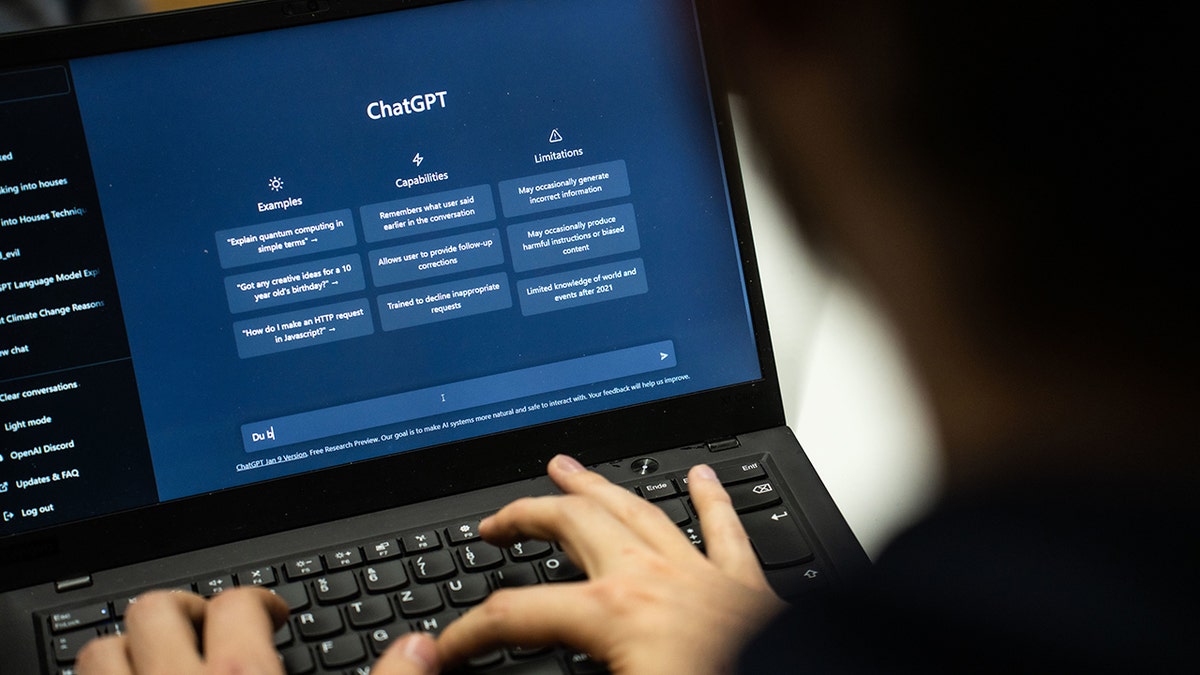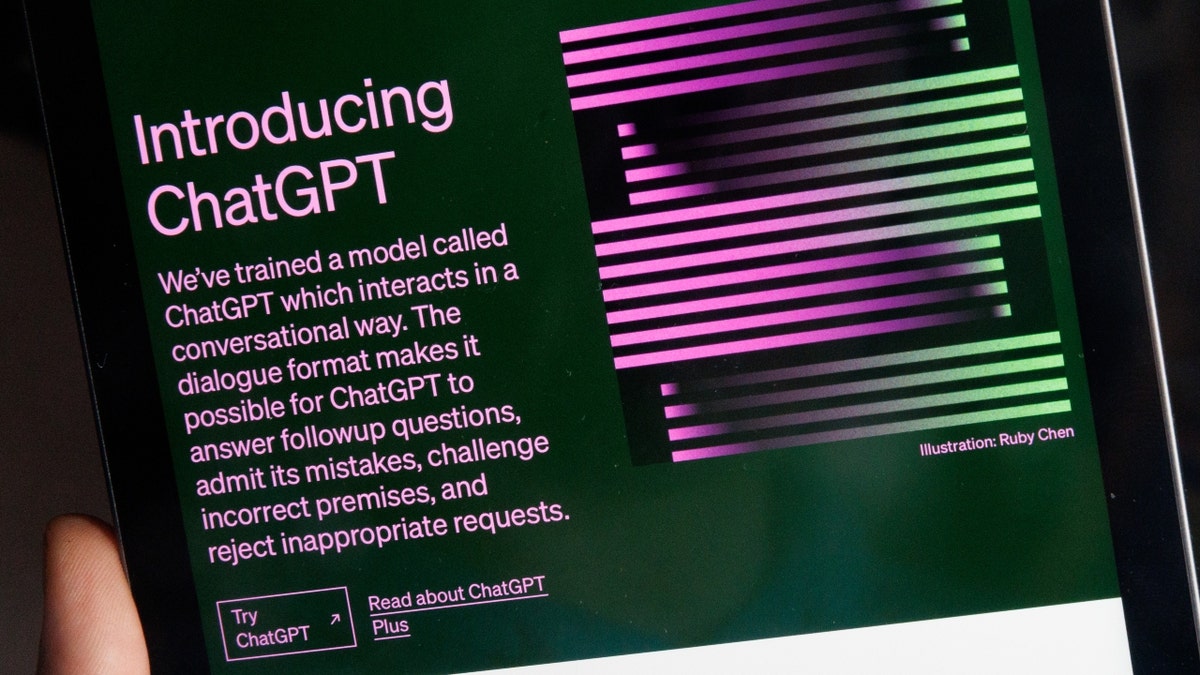Timpf: Students using ChatGPT to cheat on exams are cheating themselves
Fox News contributor Joe Concha and "Gutfeld!" co-host Kat Timpf join "The Story with Martha MacCallum" to weigh in on the impact of artificial intelligence in the classroom.
Artificial intelligence is changing the game on education as many students and even professors embrace platforms such as ChatGPT for classwork. Other students, however, are shunning the tech for school, citing the risks of getting caught using the platforms outweigh the benefits.
OpenAI released ChatGPT, a chatbot that can mimic human conversations based on prompts it is given, in November, and it quickly became the fastest-growing user base with 100 million monthly active users in January. With the release of the tech came concerns from some educators, ranging from grade schools to the college level, that students would use the platform to plagiarize or cheat.
Some college students report they are policing themselves away from using artificial intelligence to complete coursework.
"I’ve never seen actually anybody get caught with it. I don’t think students want to take that risk," a freshman at Arizona State University told Fox 10 about using ChatGPT for college assignments.
CHEATING WITH CHATGPT? STUDENTS DISH ON TEMPTATIONS OF AI IN THE CLASSROOM

Artificial intelligence is changing the game on education as many students and even professors embrace platforms such as ChatGPT for classwork. (Frank Rumpenhorst / picture alliance via Getty Images / File)
Another freshman added, "One of my professors talked about it. He just said, ‘Don’t cheat, because you got to be responsible, because you got to understand what’s at risk.’"
ChatGPT is trained by retaining text from all across the internet and using that information in its responses to humans. Students who use the tech to complete classwork risk possible misinformation – the system can "hallucinate" and give answers that seem correct but are not – and even plagiarize.
AMERICANS ARE BUYING INTO AI HYPE, BUT ONE US REGION ISN'T CONVINCED: STUDY
College students surveyed by College Rover reported that 36% of their professors threatened to fail them if they were caught using AI for coursework. Some 29% of students surveyed said their college has issued guidance on AI. The majority of students, 60%, said they don’t believe their school should outright ban AI technologies.

The majority of students, 60%, said they don’t believe their school should outright ban AI technologies. (Reuters / Francois Lenoir / File)
Though some students appear to resist the tech over potential risks, many professors and colleges are actively integrating AI platforms into classes.
Sam Scarpino, director of AI + Life Sciences at Northeastern University, told Fox News Digital that ChatGPT is "already commonplace" on campus and that using the tech helps set students up for success in their future professions.
"Being able to use technology like ChatGPT while ensuring that you have rewarding, meaningful employment is exactly what Northeastern is training its students to do," Scarpino said. "Our faculty embraces this challenge, and that’s exactly why ChatGPT is not a big deal at Northeastern. It’s just one of many pieces of technology our instructors bring into the classroom."
Scarpino said professors across the college "are using ChatGPT to reinforce their pedagogy," pointing to examples of how some philosophy classes employ the technology to narrate arguments between "long-dead scholars."
"As many may have experienced, ChatGPT does not make many grammatical mistakes but tends to churn out rather bland, vague text – a fatal flaw for some fields," he explained. "Our goal at the Institute for Experimental AI, and Northeastern more broadly, is to embrace technology and human-centered design to train, as our president, Joseph Aoun, said, a ‘robot-proof generation.’ For us, there was no pivot to ChatGPT and no need for concern."

Gen Z uses ChatGPT more than any other generation. (Eduardo Parra / Europa Press via Getty Images / File)
Gen Z, defined by the U.S. Census as people born between 1997 and 2013, uses ChatGPT more than any other generation, with more than 6 in 10 Gen Zers who say they use the tech regularly, a study from WordFinder found. That generation also makes up the majority of people currently enrolled in college.
The study from College Rover found that 41% of college students use ChatGPT a few times a week, while 10% of students use the platform once a day and 9% multiple times a day.
College students use ChatGPT the most for English studies at 21%, followed by mathematics at 17% and social sciences at 15%, according to the study that surveyed more than 1,000 students.
COLLEGE STUDENTS OPEN UP ABOUT ARTIFICIAL INTELLIGENCE IN THE CLASSROOM: 'EVERYONE IS USING CHATGPT'
Christopher Alexander, the chief communications officer at Liberty Blockchain, compared AI to firearms: It can be beneficial if used properly but comes with great risks if misused.
"AI is a tool, like a firearm. When used properly and with forethought, it can protect people. If misused, great harm can occur," Alexander said.
He said that when curricula for college students focuses on memorization and "regurgitation of facts," artificial intelligence "will just be a crutch."
CLICK HERE TO GET THE FOX NEWS APP
"The failure is ultimately in teaching students to solve problems and think creatively more than the tool, and academicians are probably going to have to reconsider how they teach in the future. But AI can’t think for you, it can only compile data. Data has to be transformed into understanding by the student either way. That is what students and teachers need to keep in mind as they navigate this new frontier."











































